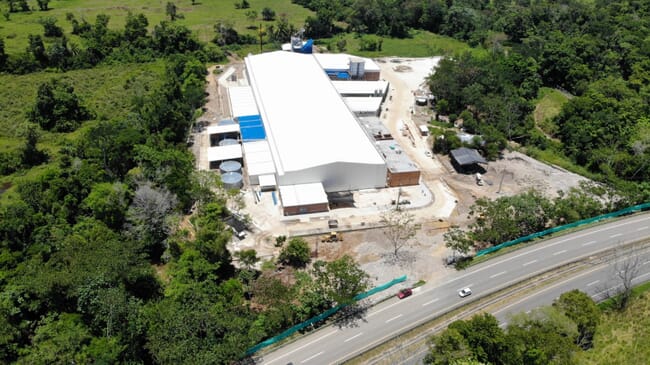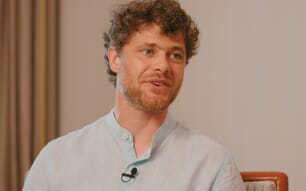
© Enthos
The investment will support the development of what Enthos aims to become one of the largest insect production facilities in Latin America. Within the building, black soldier fly larvae are used to upcycle organic waste into protein and oil products for the animal and aquaculture feed industries, as well as mineral-rich organic fertiliser.
With food insecurity already impacting 343 million people across 74 countries, the need for scalable, sustainable food solutions is more urgent than ever. At the same time, more than $1 trillion worth of food is wasted each year, with food waste landfills contributing 8 to 10 percent of total agrifood system emissions, according to the 2024 Food Waste Index Report.
Diverting 1 percent of global food waste to larvae production could yield an estimated 332,000 tonnes of protein annually and one million tonnes of organic fertiliser, requiring minimal resources compared to traditional livestock and generating significantly lower greenhouse gas emissions (about 0.017 kg CO₂-eq per kg protein versus 57–500 kg CO₂-eq per kg protein for livestock).
“Turning organic waste into high value protein and oils has the triple benefit of sustainably feeding more people, reducing ever-growing organic waste volumes and lowering methane volumes emitted from landfills,” said Andreas Grimminger, chief executive officer and co-founder of Enthos, in a press release.
“The black soldier fly larvae are ferocious consumers of food waste and grow over 200 times in a feeding period of 15 days,” he added.
A recent study suggests that some 70 percent of fishmeal and 73 percent of fish oil is used in aquafeeds.
“From our point of view, insect meal produced by Enthos is a key alternative to the fishmeal used in aquaculture, with aquafeed remaining one of the largest applications of fishmeal globally,” said Piers Lakin, principal at Ocean 14 Capital.
“As fishmeal is a limited resource, with production volumes subject to environmental fluctuations, its use as the sole protein source for fish production is not a sustainable option either economically or environmentally, so we see insect protein as an integral part of a portfolio of alternative proteins that we see reducing the reliance on fishmeal and fish oil,” he adds.
“Enthos stood out to us for its ability to turn waste into a high-value asset that fits seamlessly into global food and feed markets,” said Larsen Mettler, managing director at S2G.
“With existing demand from aquaculture and livestock producers, we believe they’re demonstrating that insect protein is a commercially viable, climate-aligned solution.”
Global compound feed production is estimated to exceed 1 billion tonnes annually, and the demand for sustainable protein inputs continues to rise. Insect-based feed is emerging as a key solution to replace fishmeal and other high-value protein sources. The global insect protein market size reached a value of $1.01 billion in 2023 and is projected to grow at a CAGR of 16% between 2024 and 2032 to reach a value of $4.09 billion by 2032, driven by the need for sustainable protein sources and environmental concerns.




